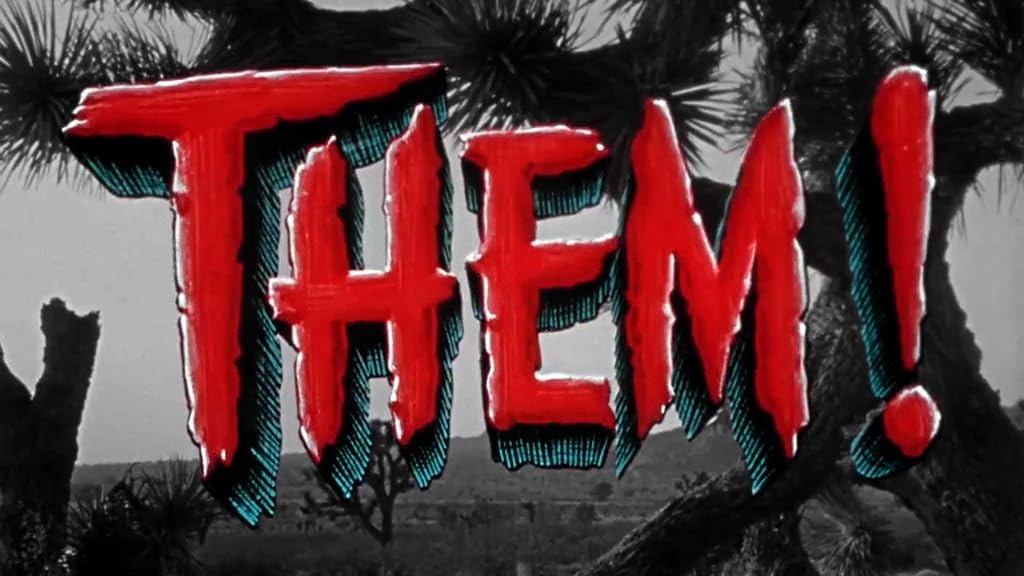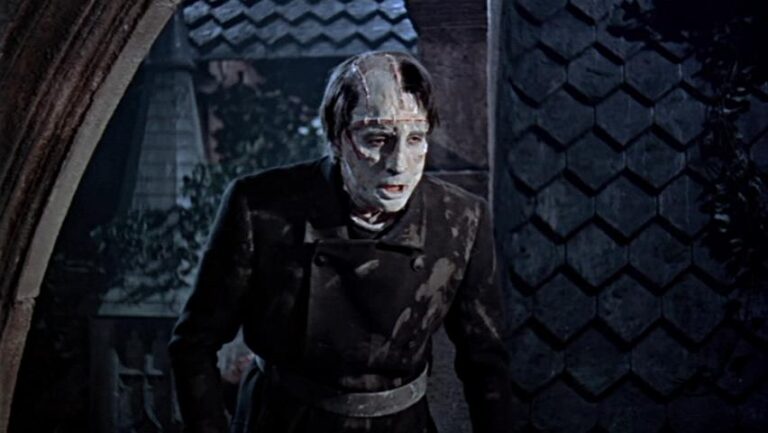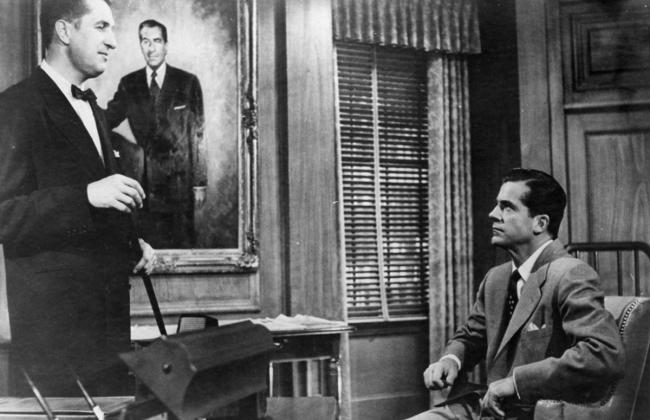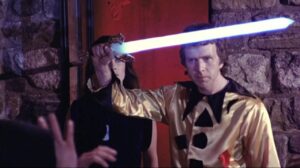Directed by Gordon Douglas
Written by Ted Sherdeman and Russel Hughes
Starring:
- James Whitmore as Sgt. Ben Peterson
- Edmund Gwenn as Dr. Harold Medford
- Joan Weldon as Dr. Patricia Medford
- James Arness as Robert Graham
- Onslow Stevens as Brig. Gen. Robert O’Brien
- Sean McClory as Maj. Kibbee
Rating: ![]()
A rousingly entertaining piece of atomic-era paranoia and one of the most astonishing achievements of allegorical monster flicks. As post-war tensions flared and nuclear threats proliferated in a geopolitical warmongering produced by the world powers, what better metaphor than to imbue that bellicose context in the realm of fiction. Hollywood savvy filmmaker Gordon Douglas helms this influential story about two entomologists (Edmund Gwenn and Joan Weldon) investigating with the FBI and state police a mysterious murder case in a New Mexico desert; what initially appeared to be the work of a demented and inexplicably strong criminal actually turns out to be the handiwork of a monstrous mutated hymenopteran: abnormal, gigantic, voracious ants.
UFOs, McCarthyism, neuroticism, conservative panic and atomic terror invaded American society with curiosity and uncertainty, which was subjected to arbitrary secrecy by governmental stratospheres; effects that triggered endless conspiracy theories about contemporary fears. It is no coincidence but a cunningly premeditated allusive exercise that the cautious opening of the plot introduces the stealthy suspense with a lonely little girl (Sandy Descher) wandering through a desert unable to speak and without any expressive features or gestures. The bewildered child is found by Sergeant Ben Peterson (James Whitmore) who takes her in his patrol car to what appears to be the child’s home, which is now destroyed and lifeless. The classical filmmaking style and the furtive storytelling don’t seem to be reciprocal or even aesthetically compatible, but the plotting is so judiciously crafted that appearances are deceiving, revealing a rigorous structural arrangement willing to sacrifice the B eccentricities of 50’s sci-fi horror cinema to give preeminence to the delights of nail-biting suspense. By the time the colossal killer ants are revealed in their full glory and take on a participatory relevance in front of the cameras, the introductory sophistication – where every narrative aspect was clandestine and scrupulous – becomes sporadic rather than persistently enigmatic. Counterproductive or not, these ants on imposing scales are glorious and their explicit appearances are used as skillfully as well as economically.
A touch implausibility is to be expected, yet even with the temptations of campy extravagance and proclivities for goofy sensibilities at hand, this film is executed by competent filmmakers, and they know it all too well. For that very reason, the “silly” factor inherent in a film about giant ants threatening the human species is never felt or abruptly interjected, the acting proficiency and above all the collaborative prowess of the entire production is organized to evade the trappings of insubstantial entertainment and naturally embrace the complexities of substantial entertainment. Predictably, the drama is made up of trite arguments. It has that gentle didactic charm that seeks to raise awareness among audiences regardless of age. Anti-nuclear weapons rhetoric was already an integral part of allegorical cinema that emerged in the 1950s. Nevertheless, the parallels drawn here are conscientious and skillfully authentic in their execution, even while sharing some B-movie tropes with other films of the era.
The most ostentatiously exciting aspect of the Creature Feature system this story employs is that human interactions – highly political – are paramount and the physicality of the monstrous ants secondary. By making the sequences of conspicuous artifice peripheral, the show focuses on the more bureaucratic side, on the tactics that the various government departments opt for in order to put an end to this potential apocalypse of the human race by a new dominant species. Indeed, it is immeasurably diverting to see how the authorities conceal these phenomena from the population and the press, evoking a trenchant parallelism between their real contemporary context and their fictitious context. The influence of this magnificent opus from the golden age of sci-fi on modern cinema is irrefutable and is a veridical proof that the finest pop entertainment comes from a carefully balanced dose of intellect and emotion, no more, no less, just them!









